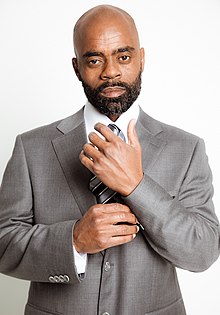
James Ambrose Johnson Jr., better known by his stage name Rick James, was an American singer, musician, producer, and songwriter. Born and raised in Buffalo, New York, James began his musical career in his teenage years. He was in various bands before entering the U.S. Navy Reserve to avoid being drafted into the army. In 1964, James moved to Toronto, Canada, where he formed the rock band the Mynah Birds, who eventually signed a recording deal with Motown Records in 1966. James's career with the group halted after military authorities discovered his whereabouts and eventually convicted him of desertion related charges. He served several months in jail. After being released, James moved to California, where he started a variety of rock and funk groups in the late 1960s and early 1970s.

John Mark Deutch is an American physical chemist and civil servant. He was the United States Deputy Secretary of Defense from 1994 to 1995 and Director of Central Intelligence (DCI) from May 10, 1995, until December 15, 1996. He is an emeritus Institute Professor at the Massachusetts Institute of Technology and serves on the boards of directors of Citigroup, Cummins, Raytheon, and Schlumberger Ltd. Deutch is also a member of the Trilateral Commission.
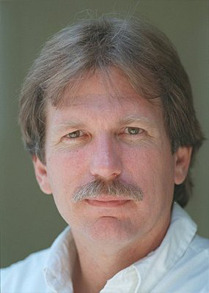
Gary Stephen Webb was an American investigative journalist.
Oscar Danilo Blandón Reyes is a Nicaraguan born drug trafficker who is best known as one of the main subjects of the 1996 newspaper series "Dark Alliance" by reporter Gary Webb.
Robert Earle Parry was an American investigative journalist. He was known for his role in covering the Iran–Contra affair for the Associated Press (AP) and Newsweek, including breaking the Psychological Operations in Guerrilla Warfare and the CIA involvement in Contra cocaine trafficking in the U.S. scandal in 1985.
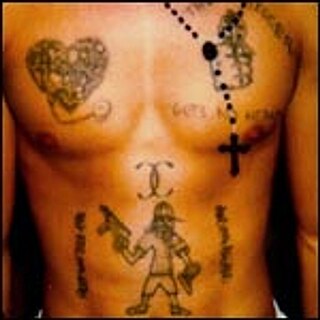
The Crips are a primarily African-American alliance of street gangs that are based in the coastal regions of Southern California. Founded in Los Angeles, California, in 1969, mainly by Raymond Washington and Stanley Williams, the Crips began as an alliance between two autonomous gangs, and developed into a loosely connected network of individual "sets", often engaged in open warfare with one another. Its members have traditionally worn blue clothing since around 1973.

Cocaine: An Unauthorized Biography (ISBN 0312286244) is a 2002 non-fiction book about the history of cocaine, written by Dominic Streatfeild and published by Diane Publishing Company. The 2003 paperback edition (ISBN 0-312-42226-1) was published by Picador. The book investigates cocaine from the chewing of the coca leaf to the large scale trafficking of cocaine into the United States.

The United States Central Intelligence Agency (CIA) has been accused of involvement in the trafficking of illicit drugs. Books and journalistic investigations on the subject that have received general notice include works by the historian Alfred McCoy, professor and diplomat Peter Dale Scott, journalists Gary Webb and Alexander Cockburn, and writer Larry Collins. These claims have led to investigations by the United States government, including hearings and reports by the United States House of Representatives, Senate, Department of Justice, and the CIA's Inspector General. The various investigations have generally not led to clear conclusions that the CIA itself has directly conducted drug trafficking operations, although there may have been instances of indirect complicity in the activities of others.

Dark Alliance: The CIA, the Contras, and the Crack Cocaine Explosion is a 1998 book by journalist Gary Webb. The book is based on "Dark Alliance", Webb's three-part investigative series published in the San Jose Mercury News in August 1996. The original series claimed that, in order to help raise funds for efforts against the Nicaraguan Sandinista government, the CIA supported cocaine trafficking into the US by top members of Nicaraguan Contra Rebel organizations and allowed the subsequent crack epidemic to spread in Los Angeles. The book expands on the series and recounts media reaction to Webb's original newspaper exposé.
A number of writers have alleged that the United States Central Intelligence Agency (CIA) was involved in the Nicaraguan Contras' cocaine trafficking operations during the 1980s Nicaraguan civil war. These claims have led to investigations by the United States government, including hearings and reports by the United States House of Representatives, Senate, Department of Justice, and the CIA's Office of the Inspector General which ultimately concluded the allegations were unsupported. The subject remains controversial.
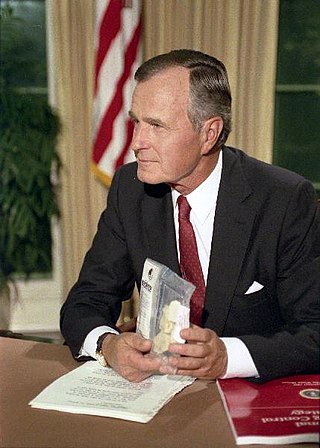
The crack epidemic was a surge of crack cocaine use in major cities across the United States throughout the entirety of the 1980s and the early 1990s. This resulted in a number of social consequences, such as increasing crime and violence in American inner city neighborhoods, a resulting backlash in the form of tough on crime policies, and a massive spike in incarceration rates.
The Pittsburgh drug trials of 1985 were the catalyst for a Major League Baseball-related cocaine scandal. Several current and former members of the Pittsburgh Pirates – Dale Berra, Lee Lacy, Lee Mazzilli, John Milner, Dave Parker, Rod Scurry – and other notable major league players – Willie Aikens, Vida Blue, Enos Cabell, Keith Hernandez, Jeffrey Leonard, Tim Raines, Lonnie Smith and Alan Wiggins – were called before a Pittsburgh grand jury. Their testimony led to the drug trials, which made national headlines in September 1985.
Celerino Castillo is a former agent for the United States Drug Enforcement Administration (DEA).
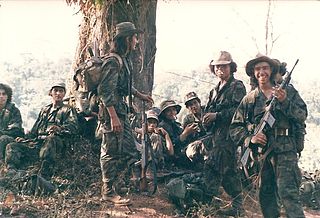
CIA activities in Nicaragua were frequent in the late 20th century. The increasing influence gained by the Sandinista National Liberation Front, a left-wing and anti-imperialist political party in Nicaragua, led to a sharp decrease in Nicaragua–United States relations, particularly after the Nicaraguan Revolution. In 1981, President Ronald Reagan authorized the Central Intelligence Agency to support the Contras, a right-wing Nicaraguan political group to combat the influence held by the Sandinistas in the Nicaraguan government. Various anti-government rebels in Nicaragua were organized into the Nicaraguan Democratic Force, the first Contra group, at the behest of the CIA. The CIA also supplied the Contras with training and equipment, including materials related to torture and assassination. There have also been allegations that the CIA engaged in drug trafficking in Nicaragua.

William Leonard Roberts II, known professionally as Rick Ross, is an American rapper and record executive. An influential figure in modern hip hop music, Rick Ross has become known for his "booming" vocal performance, "larger than life" persona, and vivid lyrical imagery. His lyrics form the hardships of street life and black market economic activity into a rags to riches narrative, often describing affluence, wealth, and luxury.
A drug lord, drug baron, kingpin, or lord of drugs is a type of crime boss in charge of a drug trafficking network, organization, or enterprise.
The War on Drugs is a term for the actions taken and legislation enacted by the US federal government, intended to reduce or eliminate the production, distribution, and use of illicit drugs. The War on Drugs began during the Nixon administration with the goal of reducing the supply of and demand for illegal drugs, but an ulterior racial motivation has been proposed. The War on Drugs has led to controversial legislation and policies, including mandatory minimum penalties and stop-and-frisk searches, which have been suggested to be carried out disproportionately against minorities. The effects of the War on Drugs are contentious, with some suggesting that it has created racial disparities in arrests, prosecutions, imprisonment, and rehabilitation. Others have criticized the methodology and the conclusions of such studies. In addition to disparities in enforcement, some claim that the collateral effects of the War on Drugs have established forms of structural violence, especially for minority communities.
James Rosemond, often known as Jimmy Henchman or sometimes Jimmy Henchmen, is an American former entertainment record executive and convicted criminal.

Kill the Messenger is a 2014 American biographical crime thriller film directed by Michael Cuesta and written by Peter Landesman. It is based on the book of the same name by Nick Schou and the book Dark Alliance by Gary Webb. The film stars Jeremy Renner, who also produced the film. The film was released on October 10, 2014, and depicts a reporter's suppressed attempts to cover the CIA involvement and secret support of large scale cocaine sales to fund the Nicaraguan Contras.
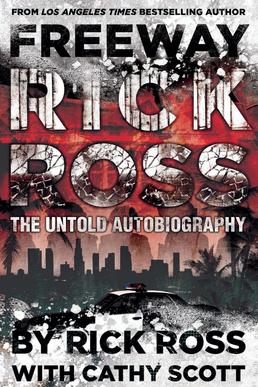
Freeway Rick Ross: The Untold Autobiography is a 2014 memoir by former drug kingpin Rick Ross, co-authored by American crime writer Cathy Scott, about the rise and fall of Ross, in the 1980s and '90s, to his 2009 release from prison. The book was released by Freeway Studios in June 2014.
